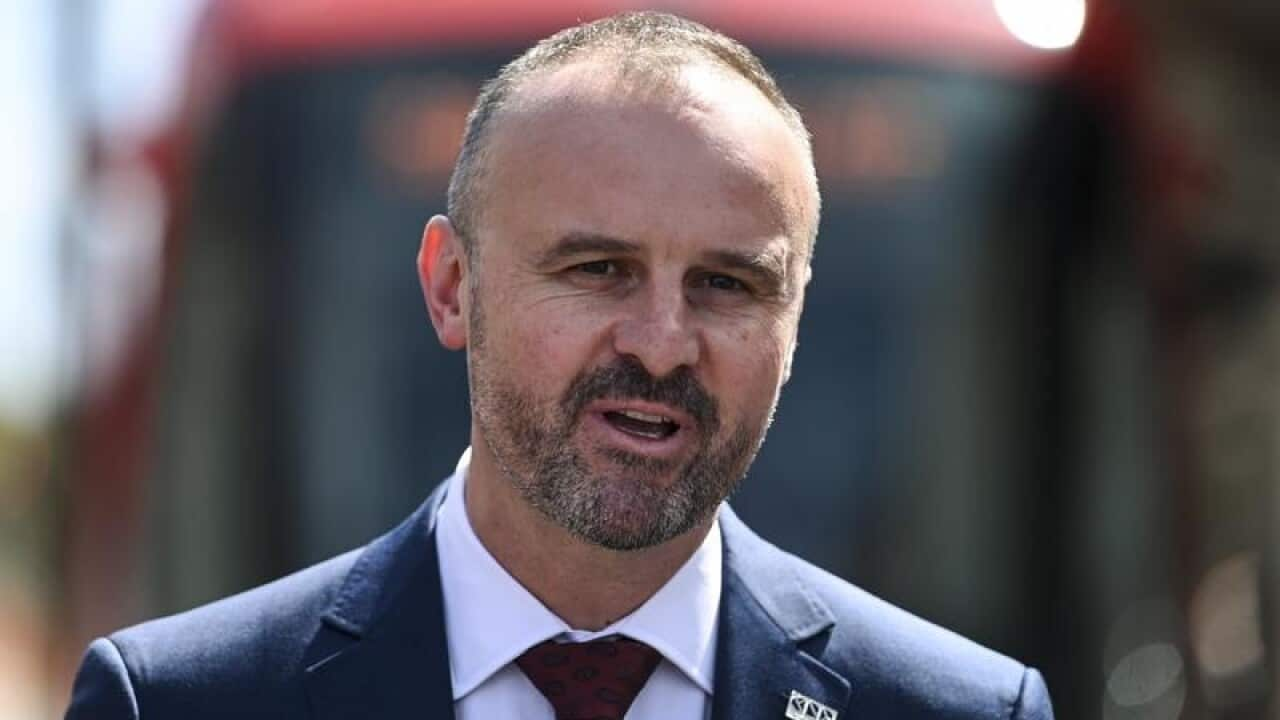ACT chief minister Andrew Barr is hoping the federal government won't be an obstacle to stage two of Canberra's light rail project.
Mr Barr delivered the national capital's budget on Tuesday, which he described as a "big and ambitious infrastructure program" by the territory's Labor government.
Despite a surplus last financial year, the ACT's books are due to be in deficit of $89.1 million for 2019/20 before improving slightly to a $66.8 million deficit the following year.
More than $3 billion has been flagged for infrastructure spending over the next four years, including new schools, healthcare facilities and public housing.
But the budget documents were without extensive detail for larger projects, with the chief minister saying a 10-year infrastructure plan would be outlined later this year.
Some projects are contingent on negotiations with the federal government, he said.
One such project is stage two of the light rail, which will run from central Canberra to Woden in the south, with a yet-to-be-determined route needing to pass through the parliamentary zone.
The first stage, which runs from Canberra's north to the city centre, opened in April.
Mr Barr said the second phase would no longer be fast-tracked without the $200 million cheque federal Labor had promised if it won government.
The chief minister didn't say the word "deficit" in his budget speech, focusing instead on the projected net surplus of nearly $400 million over the next four years.
The chief minister implied the deficit was necessary to ensure the ACT has infrastructure spending, as he didn't want to wait and see what the federal coalition may hand out.
"Canberrans would expect us to step up now in light of what's happened in the federal election, and the gap that is clearly there for this community," he told reporters.
"Nothing comes for free from this commonwealth government, let me tell you that. There's always a deal, always some behind-the-scenes machinations and that will undoubtedly be part of the task of the next few years."
Health will receive $1.8 billion this year, while $1.4 billion has been earmarked for education and $271 million for transport.
The ACT government is introducing different rates for units and non-units, with the former seeing an average rate increase of 11 per cent while house owners will get a seven per cent rise.
Stamp duty will be abolished for eligible first home buyers from July 1 in a move to help younger Canberrans enter the housing market.
Other highlights include 84 new buses, 36 new firefighters, 17,000 trees planted and programs to help domestic violence victims and vulnerable people in the justice system.
The territory's $40 billion economy is due to grow by 3.3 per cent a year over the next four years.
Next year's budget will include wellbeing indicators developed in consultation with the community.

